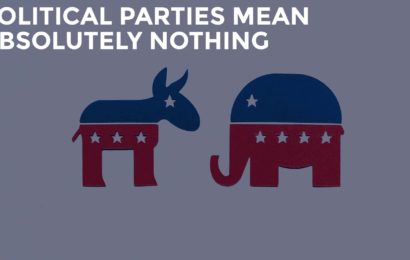
On This Day in American History — January 31 1865 — Slavery Ends
On January 31, 1865, the United States Congress approved the Thirteenth Amendment, banning slavery. Abraham Lincoln and his administration moved heaven and hell and a few Democrats to get the bill passed. The brilliant film, Lincoln, dramatizes the events which allowed the United States to finally grow closer to becoming a more perfect union.
In 1619, the first African slaves arrived on the shores of what would become the United States of America. From that point forward, slavery would define a significant part of the American story. From the Founding Fathers debating the Constitution to the Civil War to the present day, slavery has been a powder-keg inside of the American house.
Some context: In the history of the world, slavery is more the rule than the exception. Greeks, Romans, Egyptians, Arabs, and dozens of other civilizations had slavery at some point in their history. American slavery was unique in that it was a peculiar institution known as “chattel slavery.” In past civilizations, slavery was often temporary — defeated enemies, debtors, and the socially unpopular might have been enslaved for a period of time. We would probably call this indentured servitude instead of slavery. In most instances, the children of slaves were born free. Chattel slavery is unique because human beings were legally owned by another person for their entire lives; furthermore, their children, their grandchildren, and every subsequent generation was also owned by that person. This is a unique evil amongst other evils.
When the Founding Fathers were debating the Constitution, several of them were proud slaveowners, others were abolitionists, and some were unwilling to make slavery the issue that broke the union. In the 1780s, the individual states tended to view themselves something like independent nations that worked alongside similar nations. Many American states were about as large as European countries, so this isn’t that odd. In order to create a unified and central state (the first attempt, The Articles of Confederation, failed), the Founders made several concessions. They relented to Southern demands in order to keep them in the Union. They placed the US capitol in the South. They also allowed slave states to count their enslaved people as three-fifths of a person for purposes of representation in the House of Representatives and the Electoral College. This gave the slave states disproportionate power in Congress and the White House. This should also be seen as a confession; they knew they were enslaving full and complete human beings.
They were allowed to accrue constitutional power based on their slaves, though the slaves had no freedoms guaranteed by the Constitution. This disproportionate power still wasn’t enough. As the United States expanded West in the 1800s, the Republican Party arose to oppose the expansion of slavery into the West. It’s worth noting that Abraham Lincoln and the GOP didn’t oppose (at least, publicly) slavery. They weren’t abolitionists (at least, publicly). They just opposed the expansion of slavery into new states and federally-owned land. It could persist in the South. Even that wasn’t enough for the slaveholding South. They staged the country’s largest insurrection beginning on Dec 20, 1860.
It’s also worth noting that prominent generals and thinkers throughout the United States predicted the Confederacy would provoke a war they would lose. On December 24, 1860, four days after South Carolina seceded, General William T. Sherman spoke at Louisiana Seminary, the college which would become LSU. He warned the (white) Southerners:
“You are rushing into war with one of the most powerful, ingeniously mechanical, and determined people on Earth—right at your doors. You are bound to fail. Only in your spirit and determination are you prepared for war. In all else you are totally unprepared, with a bad cause to start with. At first you will make headway, but as your limited resources begin to fail, shut out from the markets of Europe as you will be, your cause will begin to wane. If your people will but stop and think, they must see in the end that you will surely fail.”
Fail they did. After General Lee’s second Northern invasion failed at Gettysburg and Sherman sacked Vicksburg in 1863, the Confederacy was broken. They refused to just take the L and fought on for two more years, but the war was already lost.
If the slaveholding South had remained loyal US citizens, they could have kept their slaves for probably another generation or two. They probably would have then been paid for the value of their slaves. Instead, they chose to be traitors. The result was monstrous, predictable, and preventable.
Due to the treason of the Confederates, over 600,000 Americans died, and Congress approved abolition on this day in 1865.






